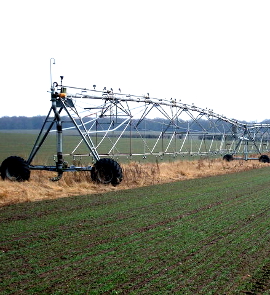Minister considers predecessor's moves
 Queensland’s new Water Minister is touring the state to understand the arrangements of his predecessors.
Queensland’s new Water Minister is touring the state to understand the arrangements of his predecessors.
Irrigators around Queensland want to know if the new State Government will maintain existing plans to hand over control of irrigation networks.
The previous LNP government had planned to allow irrigation schemes to be managed locally, rather than from Brisbane, but the process has been on hold since the election three months ago.
Water Minister Mark Bailey has met with irrigators in Central Queensland to hear their case for the continuing the policy.
“We're looking at it closely, but we also want to speak to people in the industry and hear their views and work through the issues sequentially,” he said.
“We're not just going to automatically endorse anything Campbell Newman proposed, we are going to take a close look at things.”
Irrigators were overwhelmingly in favour of the scheme when the lengthy transition process began in 2012.
Four of the state’s regional schemes began the transition before this year’s election, while several others were earmarked to follow in coming months.
Representatives from SunWater, government departments, and the Theodore scheme in Central Queensland met the Water Minister in mackay this week.
Leith Boully was appointed independent chair of the process under the previous government, and though she now has no formal role, local irrigators asked her to keep the pressure up.
“[The meeting] was an opportunity for Minister Mark Bailey to inspect an irrigation scheme and to hear from local irrigators the benefits of moving to local management and for them to express any concerns they might have,” Ms Boully told the ABC.
“I thought it was a very productive meeting.
“Obviously the Eton irrigators have done a lot of work over the past two years or so in putting together a business proposal in which they have analysed the benefits and risks of local management and they have communicated that clearly to the minister.
“The minister asked some insightful questions and I am sure learned a lot from the interaction.”








 Print
Print